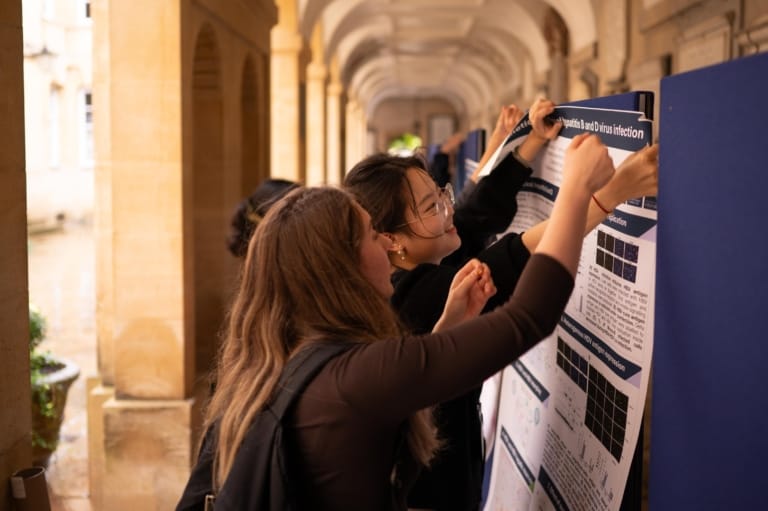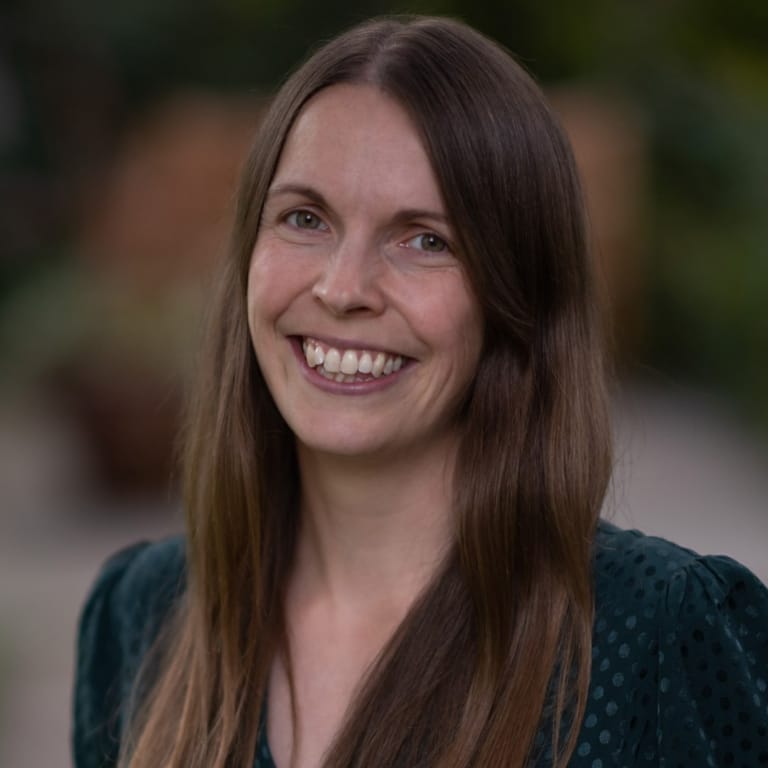Under the guidance of former Lister Fellow Professor Steve Perkins, undergraduate medic Holly Spencer delved into the intricate world of factor VIII variants and their clinical impact on haemophilia A.
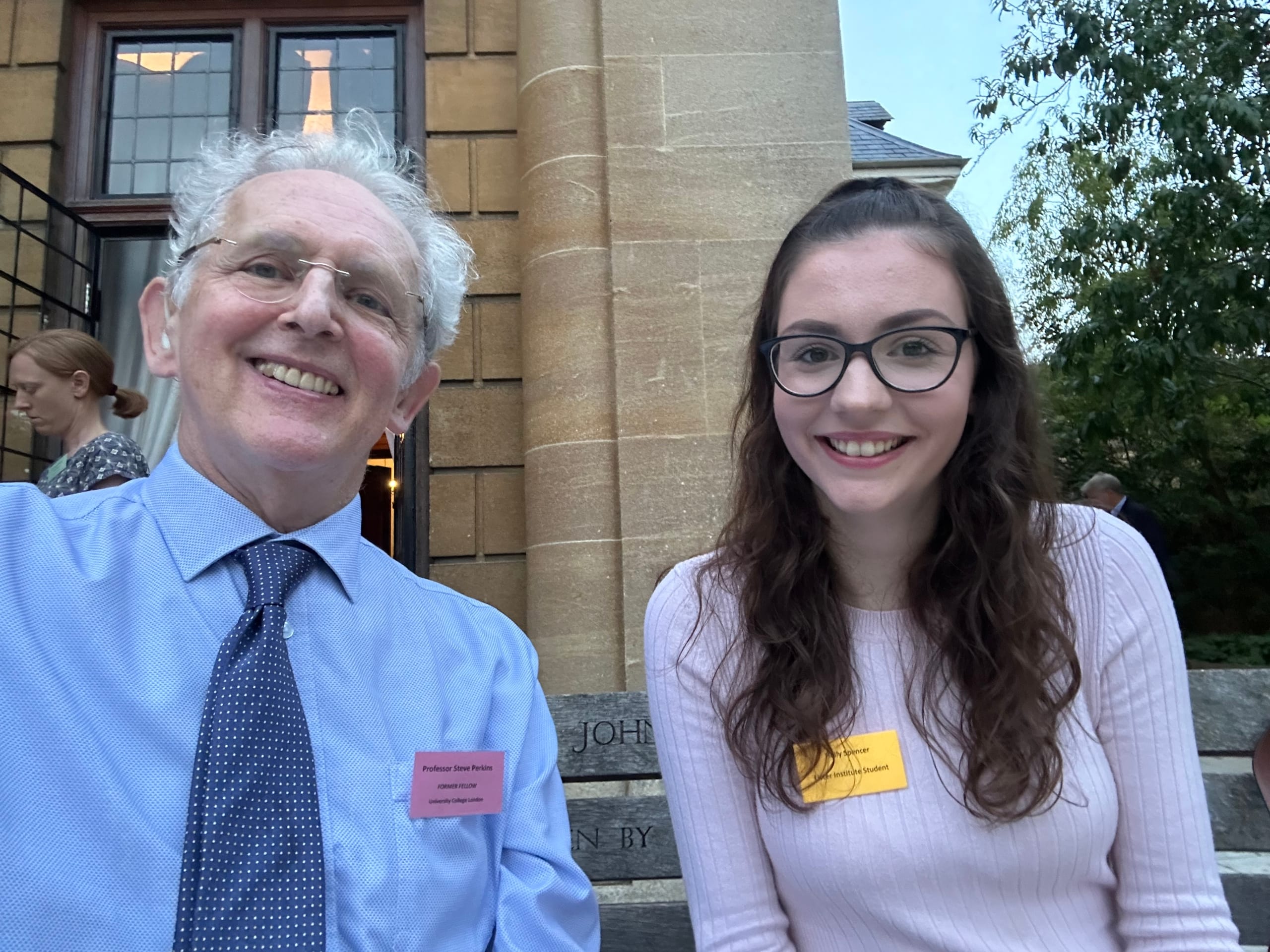
Professor Steve Perkins (Lister Fellow, 1983-86), a renowned expert in protein structure and disease, has been leading groundbreaking research at UCL’s Department of Structural and Molecular Biology. His work focuses on understanding protein structure-function relationships, especially in antibodies, complement proteins and coagulation factors.
In summer 2024, Holly Spencer spent eight weeks in his lab as part of the Lister Summer Studentship programme. She investigated the relationships between genetic mutations and structures of the clotting protein factor VIII (FVIII), and the clinical severity of the bleeding disorder haemophilia A.
Holly’s own interest in understanding protein structure and its relation to disease was sparked during a medical school lecture by Steve in her first year at med school. “I enjoyed it so much that I spoke to him and approached him about research projects,” Holly recalls. Her background in database projects and her intercalated degree in Maths and Computer Science equipped her with ideal bioinformatics skills needed for this complex research.
Data-driven biochemistry… and clinical care?
During her studentship, Holly made significant contributions to the lab’s FVIII variant database, adding over 4,000 new variants to enhance the database’s usability, especially for non-scientists. She scoured publicly available databases such as the Genome Aggregation Database (gnomAD) for genome sequences and ClinVar which compiles evidence on human variations in known proteins, often causing disease. She also dug out any literature on haemophilia A phenotypes and FVIII variants.
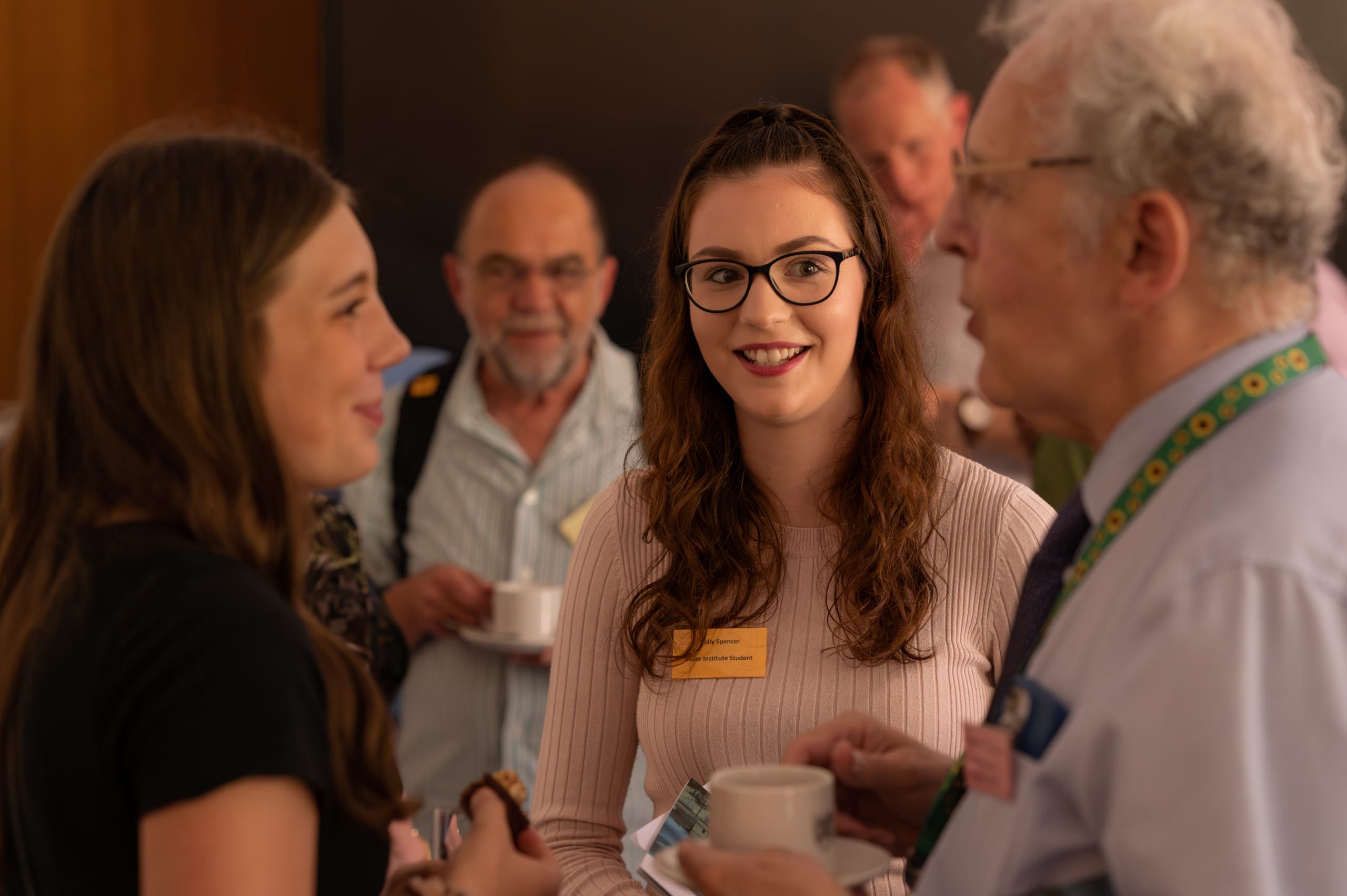
Bringing all this together, Holly has dramatically enhanced understanding of how FVIII variants are associated with the clinical severity of haemophilia A. In addition, her statistical analyses assessed the predicted harmfulness of mutations and helped identify variation ‘hotspots’ in FVIII. “It was wonderful to help shape the lab’s research design and methodology,” Holly reflects. “I was able to source and convert data into more readable and usable formats which haematologists can now use to find out more information about a patient’s FVIII mutation. I think future research could involve targeting these variation hotspots for more effective therapies.”
Steve says Holly’s work has been instrumental in improving the accuracy and reliability of the database. “Holly excelled at this task. We ended up with an astonishing total of 6,211 variants in the database,” he remarks.
Papers and prizes
The paper Analysing 6,211 unique variants in the upgraded interactive FVIII web database reveals novel insights into haemophilia A was published in the journal BloodVTH in January 2025. It describes the lab’s upgraded, full-length FVIII structure and reveals that while variation occurs across all three FVIII domains, the disordered B domain is a significant hotspot. Furthermore, by linking variation in clinical phenotypes to FVIII variants, Holly showed that 730 variants (12%) were associated with mild disease, 526 (8%) with moderate phenotypes, and 2,509 (39%) with severe symptoms. Holly employed innovative techniques, including advanced bioinformatics tools such as PolyPhen, to analyse the structural and functional impacts of these variants.
Steve particularly admired her ability to read scientific and clinical papers, extract information, and synthesise key findings and evidence into useable database formats. “Holly is a magnificent student. She knew a lot about protein databases and the medical background of diseases. She got up to speed very quickly and more or less finished off the project for us.”
I enjoyed bringing my work to light and sharing what I’ve learned about how databases can bridge the gap between research and the clinic, At a local level, this is something I talk about to a lot of people who are going to become doctors and even haematologists one day – I want to pass it on!
– Holly Spencer
This research provides a deeper understanding of the genetic variations associated with haemophilia A, which can lead to better diagnostic and therapeutic strategies. “The most common type of haemophilia is haemophilia A,” says Holly, “so it is good to contribute significantly to people’s lives and hopefully one day improve their quality of life.”
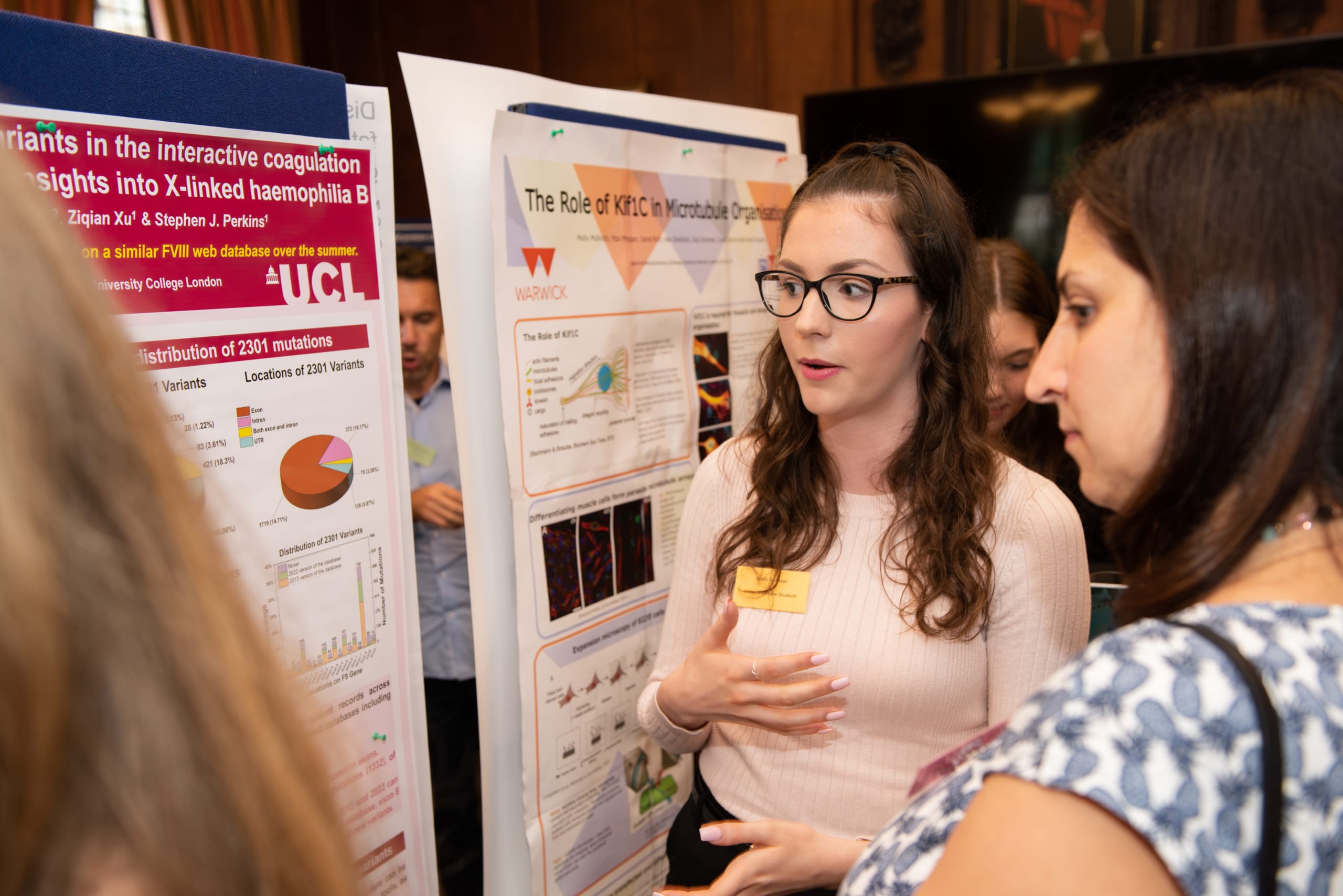
Holly also won first prize for her poster on the studentship project at a London undergraduate pathology conference in 2024.
Pause for PhD
Holly’s studentship experience was not only scientifically enriching but also personally transformative. She developed a range of transferable skills: python coding, data analysis, and thinking about front-end database usability. “I really wanted to gain more data-based experience and become more computationally fluent,” she explains. “I used new statistical analysis tools and python helped to speed up analyses – really useful skills. The studentship was a great opportunity to have eight weeks of solid work time, to get stuck in every day and bring to this work to completion.”
Holly argues that developing a data-related skillset is a must for any scientist. “I think coding and bioinformatics are essential these days. This paper might look a bit futuristic compared with traditional laboratory experimentation, but this is the way medicine is moving with more preventative testing and use of data-based prediction tools. I’ve learned a lot about how technology influences clinical practice and decisions. In future as a medical doctor, I’ll have to know about the genetic and functional basis of disease, so it has been good to be part of a project which might influence treatment research and clinical practice.”
The studentship also solidified Holly’s decision to pursue a PhD; she is committed to starting an MBPhD programme in October 2025 focusing on structural biology related to a rare kidney disease. “Now I’ve had the studentship and with the PhD coming, I’ve learned that I really enjoy research. I would love to take genetic medicine forward as a research clinician.”
But the benefits do not stop with Holly; her legacy lives on in Steve’s lab. Holly has trained up other members of the research team who are now using similar techniques to build up similar databases for other coagulation factors, with several more papers in preparation. “Holly’s dedication to this work has not only advanced scientific knowledge given us a great foundation for future research at the interface of structural biology and clinical care,” concludes Steve. “Her story is a testament to the transformative power of research and the importance of supporting young scientists in their pursuit of knowledge.”


